2-Nitrophenylacetonitrile
- CAS NO.:610-66-2
- Empirical Formula: C8H6N2O2
- Molecular Weight: 162.15
- MDL number: MFCD00007183
- EINECS: 210-231-0
- SAFETY DATA SHEET (SDS)
- Update Date: 2025-01-27 09:38:02
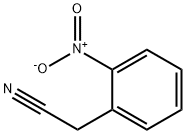
What is 2-Nitrophenylacetonitrile?
Chemical properties
Yellow Solid
The Uses of 2-Nitrophenylacetonitrile
2-Nitrophenylacetonitrile was used in synthesis of 2 or 2,4-substituted α-carbolines via a one-pot tandem reaction of α,β-unsaturated ketones. It was used in the synthesis of strychnine.
Synthesis Reference(s)
Synthesis, p. 514, 1987 DOI: 10.1055/s-1987-27989
General Description
Light brown solid.
Air & Water Reactions
Insoluble in water.
Reactivity Profile
Nitriles, such as 2-Nitrophenylacetonitrile, may polymerize in the presence of metals and some metal compounds. They are incompatible with acids; mixing nitriles with strong oxidizing acids can lead to extremely violent reactions. Nitriles are generally incompatible with other oxidizing agents such as peroxides and epoxides. The combination of bases and nitriles can produce hydrogen cyanide. Nitriles are hydrolyzed in both aqueous acid and base to give carboxylic acids (or salts of carboxylic acids). These reactions generate heat. Peroxides convert nitriles to amides. Nitriles can react vigorously with reducing agents. Acetonitrile and propionitrile are soluble in water, but nitriles higher than propionitrile have low aqueous solubility. They are also insoluble in aqueous acids.
Fire Hazard
Flash point data for 2-Nitrophenylacetonitrile are not available. 2-Nitrophenylacetonitrile is probably combustible.
Properties of 2-Nitrophenylacetonitrile
| Melting point: | 82-85 °C(lit.) |
| Boiling point: | 178°C |
| Density | 1.3264 (rough estimate) |
| refractive index | 1.5770 (estimate) |
| storage temp. | Sealed in dry,Room Temperature |
| solubility | Chloroform, Ethyl Acetate |
| form | Powder |
| color | Light brown to brownish-gray |
| Water Solubility | <0.01 g/100 mL at 20 ºC |
| BRN | 1869400 |
| Exposure limits | NIOSH: IDLH 25 mg/m3 |
| Stability: | Stable. Incompatible with strong oxidizing agents. |
| CAS DataBase Reference | 610-66-2(CAS DataBase Reference) |
| EPA Substance Registry System | o-Nitrophenylacetonitrile (610-66-2) |
Safety information for 2-Nitrophenylacetonitrile
| Signal word | Warning |
| Pictogram(s) |
 Skull and Crossbones Acute Toxicity GHS06  Exclamation Mark Irritant GHS07 |
| GHS Hazard Statements |
H302:Acute toxicity,oral H311:Acute toxicity,dermal H315:Skin corrosion/irritation H319:Serious eye damage/eye irritation H332:Acute toxicity,inhalation H335:Specific target organ toxicity, single exposure;Respiratory tract irritation |
| Precautionary Statement Codes |
P261:Avoid breathing dust/fume/gas/mist/vapours/spray. P280:Wear protective gloves/protective clothing/eye protection/face protection. P309:IF exposed or if you feel unwell: P310:Immediately call a POISON CENTER or doctor/physician. P305+P351+P338:IF IN EYES: Rinse cautiously with water for several minutes. Remove contact lenses, if present and easy to do. Continuerinsing. |
Computed Descriptors for 2-Nitrophenylacetonitrile
2-Nitrophenylacetonitrile manufacturer
SAKEM LLP
New Products
4,4-Difluoropiperidine hydrochloride tert-butyl 9-methoxy-3-azaspiro[5.5]undecane-3-carboxylate Indole Methyl Resin N-Isopropylurea N,N-Dicyclohexylcarbodiimide(DCC) MELDRUMS ACID 5-METHYLISOXAZOLE-4-CARBOXYLIC ACID Magnessium Bis glycinate Zinc ascorbate 1-bromo-2-butyne 2-acetamidophenol 9(10H)-anthracenone Erythrosin B, 4-Piperidinopiperidine 2-((4-morpholinophenylamino) (methylthio) methylene) malononitrile 2,4-dihydroxybenzaldehyde 3-(4-morpholinophenylamino)-5-amino-1H-pyrazole-4-carbonitrile Methyl 2-methylquinoline-6-carboxylate 2,6-dichloro-4-nitropyridine 4-Bromo-2-chlorobenzonitrile 2-(benzylamino)acetic acid hydrochloride 4-(tert-Butoxycarbonylamino)but- 2-ynoic acid 3,4-dihydro-2H-benzo[b][1,4]dioxepine 1-Phenyl-1-cycloprppanecarboxylicacidRelated products of tetrahydrofuran
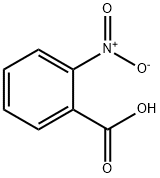
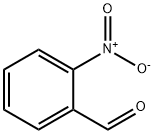
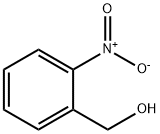
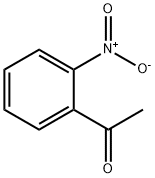
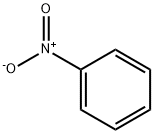



You may like
-
 2-Nitrophenylacetonitrile CAS 610-66-2View Details
2-Nitrophenylacetonitrile CAS 610-66-2View Details
610-66-2 -
 610-66-2 2-(2-Nitrophenyl)acetonitrile 98%View Details
610-66-2 2-(2-Nitrophenyl)acetonitrile 98%View Details
610-66-2 -
 2-Nitrobenzyl Cyanide CAS 610-66-2View Details
2-Nitrobenzyl Cyanide CAS 610-66-2View Details
610-66-2 -
 2-(2-Nitrophenyl)acetonitrile 98%View Details
2-(2-Nitrophenyl)acetonitrile 98%View Details
610-66-2 -
 3-(4-amino-1-oxoisoindolin-2-yl)-1-methylpiperidine-2,6-dione 98%View Details
3-(4-amino-1-oxoisoindolin-2-yl)-1-methylpiperidine-2,6-dione 98%View Details -
 20677-73-0 (2,2-diethoxyethyl)methylamine 98%View Details
20677-73-0 (2,2-diethoxyethyl)methylamine 98%View Details
20677-73-0 -
 3-(4-(hydroxyamino)-1-oxoisoindolin-2-yl)piperidine-2,6-dione 98%View Details
3-(4-(hydroxyamino)-1-oxoisoindolin-2-yl)piperidine-2,6-dione 98%View Details -
 57381-49-4 2-bromo-4-chlorobenzonitrile 98%View Details
57381-49-4 2-bromo-4-chlorobenzonitrile 98%View Details
57381-49-4
